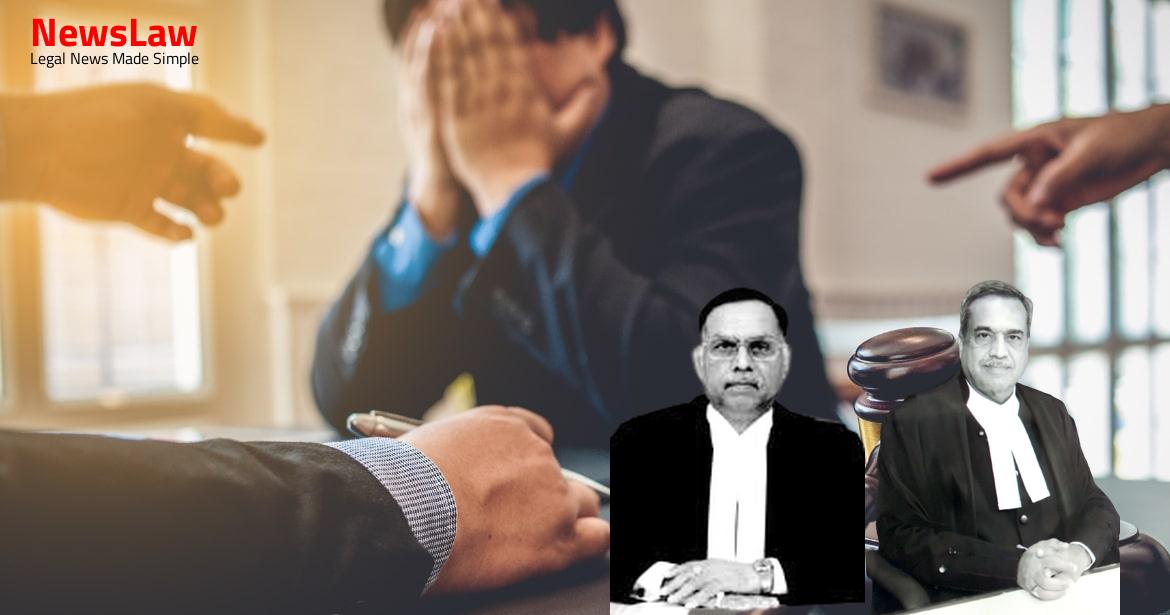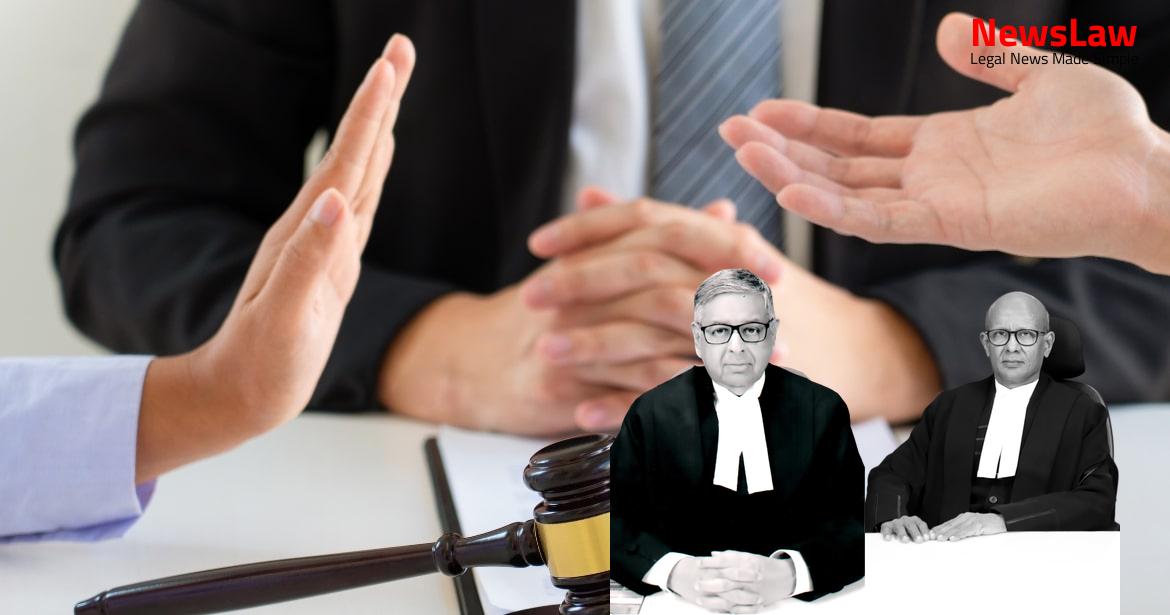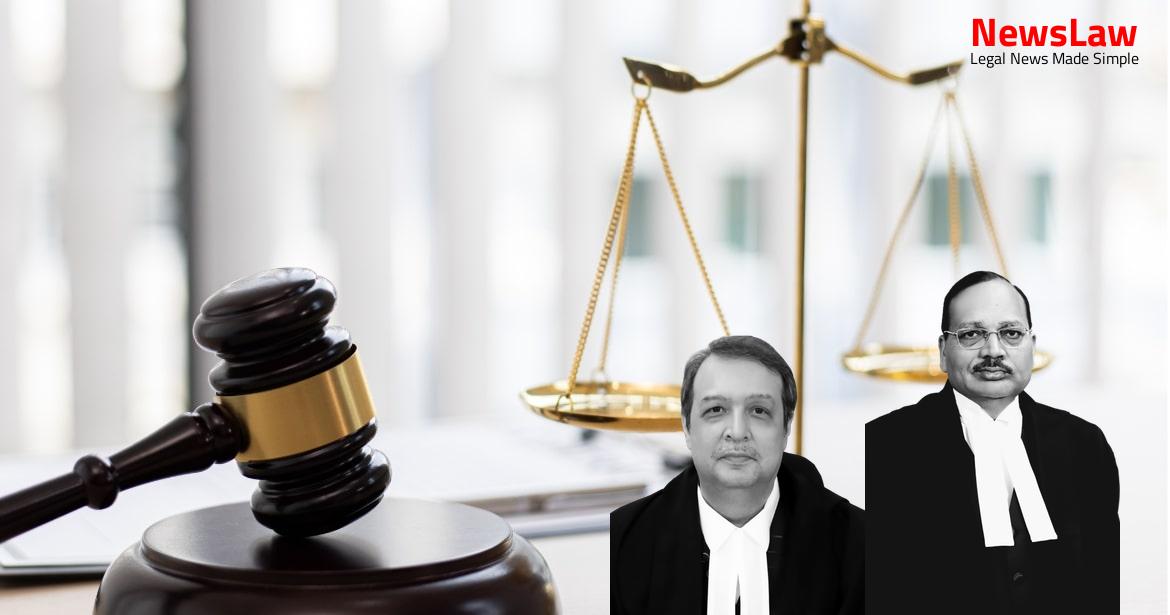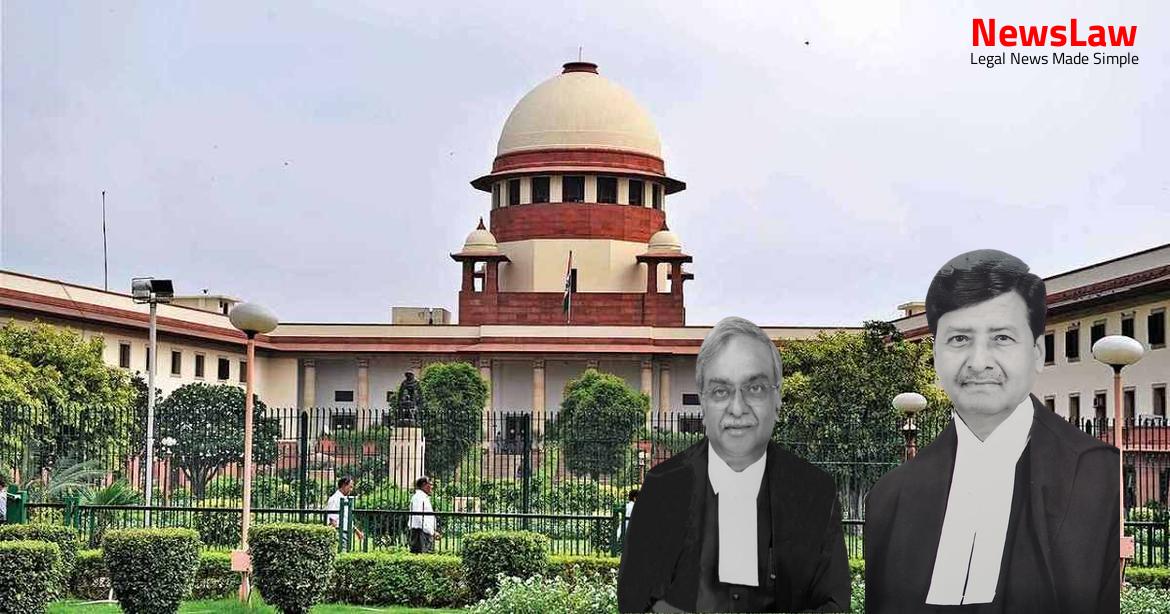Explore the intricacies of the court’s jurisdiction in allowing further investigation in criminal cases without the need to hear the accused beforehand. This blog delves into the legal intricacies of Section 173(8) of the CrPC and the court’s discretion in such matters. Stay tuned to unravel the court’s reasoning and implications in the recent case!
Facts
- Private respondent can carry out proceedings against Shri M. N. Bhaumik for not prosecuting him.
- Court observed that the Victim can file objection and protest petition in Trial Court if he has any objection against dropping of another accused.
- Learned Chief Judicial Magistrate dismissed the application on merits and jurisdictional ground after charge-sheet is filed.
- Private respondent filed Special Criminal Application before High Court of Gujarat against the order of Chief Judicial Magistrate.
- Appellant filed appeal against the High Court’s order dismissing the application seeking further investigation against other persons.
- Police Inspector, Satellite Police Station filed charge-sheet on 02.05.2001 against the appellant and others for specific offences.
- Buildings collapsed due to an earthquake on 26.01.2001, including Shikhar Apartment where 98 persons died.
- Three accused persons were not charge-sheeted initially.
- Victim filed application for further investigation against one of the accused, Shri Bhaumik.
- Appellant submitted application to be joined as party respondent in the application for further investigation.
- Appellant and other accused came to be charge-sheeted after rounds of litigations.
- Charge-sheet was filed against remaining accused during the appeal in this Court.
- High Court Judge dismissed the application filed by the appellant.
- Present appeal brought to this Court as Criminal Appeal No. 1426 of 2017.
- FIR lodged against appellant and others for various offences under IPC and other statutes.
Also Read: Court’s Analysis on Interim Order for Appointing Contractual Employees
Arguments
- The appellant is opposed to the present appeal by the private respondent and the State of Gujarat.
- The private respondent’s allegations against the investigating agency necessitate the appellant’s presence as a necessary and proper party for effective adjudication.
- Rule 51 of the Gujarat High Court Rules, 1993 supports the appellant’s stance that all parties to the original proceedings must be included in the appeal.
- Citing relevant case law, it is argued that the appellant, already charge-sheeted, should have a say in the proceedings where allegations have been made against the investigating officer.
- The appellant’s absence as a co-accused in the writ petition filed by the victim was a grave error by the High Court, according to the appellant’s Senior Advocate.
- The application for further investigation under Section 173(8) CrPC was rejected by the Chief Judicial Magistrate, justified by the filing of the charge-sheet and recording of complainant’s evidence.
- The complainant does not have the right to file for further investigation under Section 173(8) CrPC once the charge-sheet is framed, as per previous rulings.
- The appellant argues that even if the Special Criminal Application is allowed and further investigation against another accused is permitted, the appellant is not an affected party.
- Other legal submissions were made by the appellant’s Senior Advocate on the merits of the application for further investigation.
- Shri Mayee, Advocate for the State of Gujarat opposed the appeal and application by the appellant, stating that the appellant is a co-accused already charge-sheeted and has no locus standi in the petition by the private respondent.
- The appellant is not the affected party as the application under Section 173(8) CrPC does not seek relief against the appellant but against another co-accused, Shri Bhaumik, who is yet to be charge-sheeted.
- The High Court rightly refused to implead the appellant as a party respondent in the petition filed by the private respondent.
Also Read: The Supremacy of Pharmacy Act in Regulating Pharmacy Education
Analysis
- The court has the power to direct the police to conduct further investigation without needing to hear the accused beforehand.
- There is no obligation for the court to hear the accused before issuing a direction for further investigation under Section 173(8) of the CrPC.
- Imposing such an obligation would burden the court with the task of locating all potential accused for a hearing.
- The High Court rightly dismissed the application of the appellant to be impleaded as a party respondent in the Special Criminal Application.
- The co-accused, for whom no relief of further investigation is sought, has no locus standi in the application for further investigation under Section 173(8) CrPC.
- The proposed accused, Shri Bhaumik, against whom further investigation is requested, is not required to be heard at this stage.
- In the given circumstances, the appellant, who is already charge-sheeted and undergoing trial, is not required to be heard in the proceedings for further investigation under Section 173(8) CrPC.
- Background information on the case of Sri Bhagwan Samardha
- Court’s holding in paragraph 11 of the judgement
- Relevance of the decision in Sri Bhagwan Samardha to the current case
- 1.1
- 1.2
- 1.3
Also Read: Judicial Analysis: Death Penalty Conversion in Landmark Case
Case Title: SATISHKUMAR NYALCHAND SHAH Vs. THE STATE OF GUJARAT (2020 INSC 246)
Case Number: Crl.A. No.-000353-000353 / 2020



